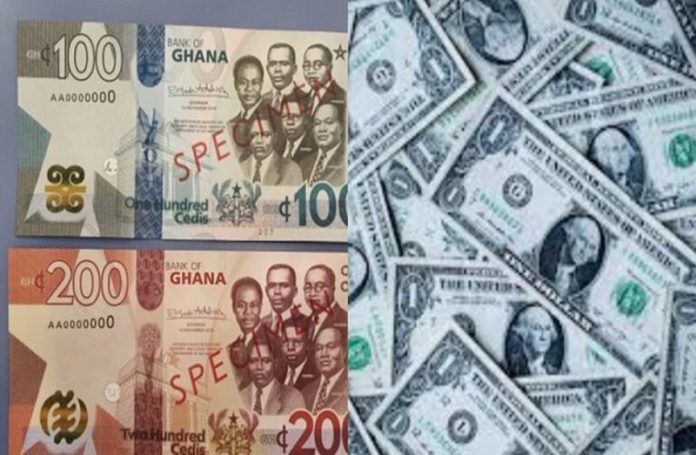The Ghana cedi is facing mounting pressure as its recent strong performance fades away, relinquishing its position as the world’s top-performing currency over the past two weeks.
In the retail market, the local currency experienced a significant 9% decline against the US dollar, erasing the gains it had achieved in the previous week.
On average, the cedi traded at ¢11.50 against the US dollar in the retail market, while it was valued at around ¢10.89 in the interbank market. However, at forex bureaus, the cedi was priced at nearly ¢12.
Furthermore, the cedi weakened by 4.8% against the euro and 3.1% against the pound on a week-on-week basis.
Experts attribute the abrupt reversal in the cedi’s fortunes to widespread speculative foreign exchange purchases, which occurred as the local currency strengthened following the agreement with the International Monetary Fund.
It is anticipated that the current exchange rates will remain relatively stable until the mid-year budget review. Market sentiments are likely to be influenced by policy proposals and the extent of monetary adjustments outlined in the program.
According to Bloomberg, the cedi has depreciated by approximately 12% against the US dollar since January 1, 2023. On the interbank market, the year-to-date depreciation of the cedi against the dollar stands at 21.8%.

